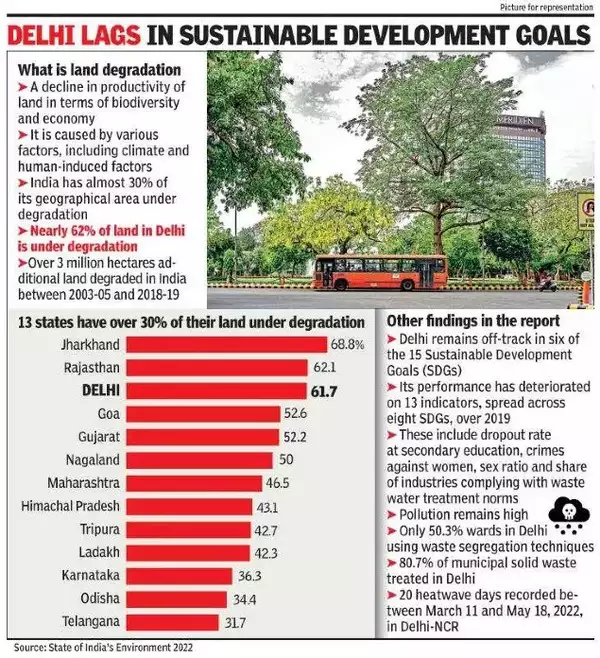Land pollution is the degradation of the Earth's surface caused by human activities and the disposal of waste materials. It is a growing environmental issue that negatively impacts not only the land itself but also plants, animals, and humans.
Causes of Land Pollution:
1. Industrial Waste: Factories and industries often generate harmful waste materials, such as chemicals and metals, which are disposed of improperly. This can pollute the soil and make it toxic for plants and animals.
2. Agricultural Activities: The use of pesticides, herbicides, and chemical fertilizers contaminates the soil, reducing its fertility and harming organisms living in it.
3. Deforestation: Cutting down trees for agriculture, urbanization, and industrialization leads to soil erosion and loss of nutrients. The absence of trees also reduces the land's ability to absorb water.
4. Urbanization and Construction: As cities expand, more waste is generated, and construction activities contribute to land pollution. Materials like plastic, metal, and glass, when not disposed of properly, accumulate and pollute the land.
5. Mining: Extracting minerals from the Earth results in the removal of topsoil and the generation of hazardous waste, which often leads to land pollution.
6. Waste Disposal: Improper disposal of household waste, especially non-biodegradable materials like plastic and glass, leads to the accumulation of waste in landfills, polluting the surrounding soil and groundwater.
Effects of Land Pollution:
Loss of Fertile Soil: Land pollution reduces soil fertility, which affects agricultural productivity and can lead to food shortages.
Health Hazards: Polluted land can cause severe health problems, including respiratory issues, skin diseases, and even cancer, as toxins from the soil can enter the food chain.
Habitat Destruction: Animals and plants lose their natural habitats due to deforestation and soil contamination, leading to a decline in biodiversity.
Water Pollution: Contaminated land can lead to water pollution, as chemicals seep into rivers and groundwater sources, affecting aquatic life and human drinking water.
Climate Change: Decomposing waste in landfills releases greenhouse gases like methane, contributing to global warming.
Solutions to Land Pollution:
1. Waste Management: Proper disposal and recycling of waste materials can significantly reduce land pollution. Governments should encourage waste segregation and promote the use of biodegradable materials.
2. Sustainable Agriculture: Farmers can adopt eco-friendly farming practices, such as organic farming and crop rotation, to reduce the use of harmful chemicals.
3. Afforestation: Planting trees helps restore damaged ecosystems, prevents soil erosion, and improves the fertility of the soil.
4. Stricter Regulations: Governments need to enforce laws that regulate industrial waste disposal, reduce deforestation, and prevent illegal dumping.
5. Awareness and Education: Educating people about the importance of reducing, reusing, and recycling waste can help individuals make more eco-friendly choices in their daily lives.
Conclusion:
Land pollution is a serious issue that requires immediate attention. By implementing sustainable practices and raising awareness, we can protect the land from further degradation and ensure a healthier environment for future generations.

